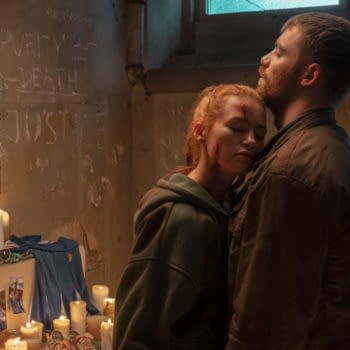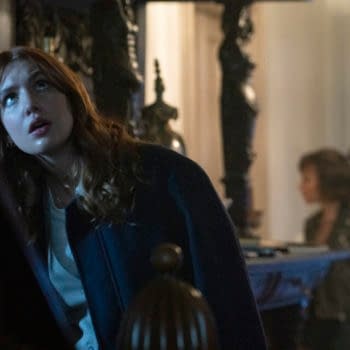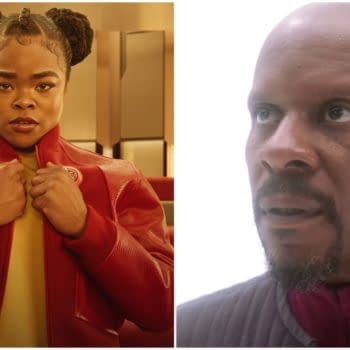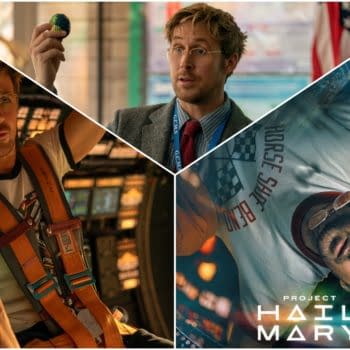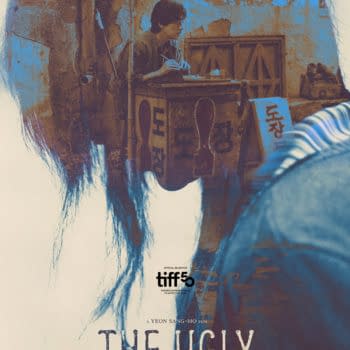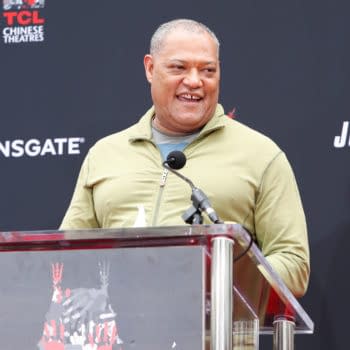Posted in: Movies, Warner Bros | Tagged: christopher nolan, full metal jacket, matthew modine, stanley kubrick, The Hollywood Reporter, THR, vincent d'onofrio
Full Metal Jacket: Matthew Modine Talks Stanley Kubrick, Comparisons
Matthew Modine has one of the most venerable careers in Hollywood, working on film and television. The actor was fortunate enough to work with some of the industry's most revered directors like Stanley Kubrick with the Vietnam War-era Full Metal Jacket (1987) and Christopher Nolan for The Dark Knight Rises (2012). Modine spoke to The Hollywood Reporter about how fans still talk about his most enduring work. When it comes to Full Metal Jacket, the actor's perspective changed over the years since it's among his earliest work. "I've never really analyzed it," Modine said. "I've been acting now for 40 years and worked with incredible directors like Robert Altman, Alan Parker, Christopher Nolan, and Oliver Stone. I can see people wanting to ask another question before it's asked, and I can't tell you how many times I've been asked, 'What was Stanley like?' Each of those directors that I just mentioned all asked that question."
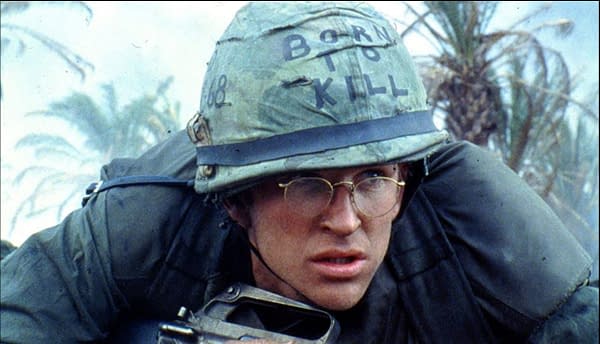
How Modine Compares Each Director He Works With
Modine compared each director metaphorically to how one approaches sex. "I guess you could say that every director makes love, but they all do it a little bit differently, right?" he said. "We all make love, but we all do it a little bit differently. Obviously, Stanley did it very differently than any of those other directors that I just mentioned and was revered by those people, as well as millions of fans around the world, for his artistry. And the thing that's fascinating is the appreciation of his ability to have made a movie 33 years ago that is still part of the conversation. It will still elicit a conversation or solicit a conversation with someone like yourself, and it's a movie that came out so long ago. How often does that happen? It's just a pretty rare occurrence that a movie becomes part of the vernacular and is so quoted that people write songs about it. From the very beginning with 2 Live Crew and the 'Me So Horny' song to other people today, it's quite extraordinary to have been a part of a film like that, to have had the extraordinary pleasure and honor of working with a director like Stanley Kubrick. So yes, it has obviously impacted my life in ways that I can't even imagine."
Does Modine Take What He's Learned from Full Metal Jacket Into Other Projects?
When it comes to if Modine has any flashbacks to Kubrick's direction working on other projects, the actor maintained there's a process each director follows in the interest of time, which wasn't so much the case on the set of Full Metal Jacket. "Yes, it's a story that he told Arliss Howard, who played Cowboy. He said, 'You know, you're going to miss me,'" Modine recalled. "When we finished filming Full Metal Jacket, he said, 'You're going to miss me,' and Arliss said, 'Of course, I'm going to miss you.' And he said, 'No, you're going to be on another film set, and you're going to miss me because the director is going to say 'cut, print, we got it, let's move on,' and you're going to miss me because you're going to know that we didn't get it.' And Arliss says that there hasn't been a film that he's worked on since Full Metal Jacket where one or two times, they've said, 'Cut, print, we got it, let's move on,' and 'I haven't missed Stanley.' So I often think about that when I'm working on films and when I know a director, because of time constraints, has to move on. It's just not as good as it could've been, but they moved on. That never happened on a Kubrick set, and it's a testament to Stanley's great skill at being a film producer. He created an environment for him to be able to have that kind of time and that kind of freedom to work on a scene until he knew that he was satisfied and could move on from it. There were times when we were making Full Metal Jacket, and there weren't more than 10 or 15 people on the set, besides the recruits and the people that were working on camera. On most films, you have 60 people working on the film all the time, but Stanley just created an environment where that wasn't the case. He didn't need to have those people around and was able to furlough people when necessary."
Explaining Kubrick's Perfectionism with Excessive Takes
Kubrick has a reputation for being a difficult director to work with, given his excessive takes. During the infamous bat scene in The Shining (1980), stars Shelley Duvall and Jack Nicholson had to reshoot 127 times. The scene had Wendy (Duvall) fearful of her life kept swinging randomly to fend off her crazed husband Jack (Nicholson) as they ascend the stairs at the Overlook Hotel. Modine likens the director's methods to a conductor in an orchestra fine-tuning the performers' cadence during a scene. "Stanley and I talked about that," the actor recalled. "He said that, 'I always get blamed for doing lots of takes. You know why I have to do lots of takes? Because the actors don't know their lines.' He said, 'When I was working on Spartacus, I tried to get close to these incredible British actors that were working on the film: Laurence Olivier and Peter Ustinov, etc.' And he said, 'When I'd get close to them, they'd stop talking and say hello, but I was sure that what they were saying was, 'What does this kid from the Bronx know about directing great British actors?" Then he said, 'And then, one day, I was able to get close enough to hear what it was that they were doing and they were practicing their lines. They were saying their lines over and over and over again because you want to get to a place where you don't have to think about what it is you're saying. You get to a place where there's nothing else that's logically necessary to say but the lines that you were scripted, and your responsibility as an actor is to memorize, show up and do your part.' So if we think of Stanley as a conductor of an orchestra, his job is not to learn the music that the violinist is going to play or the cellist or the percussionist; his job is to conduct those people. So your responsibility as an artist when you're working on a Stanley Kubrick film or any film is to learn your part so that when you come in, you know how to play that part of the violin or the cello or the percussion. And it's the director's job then to say 'a little bit louder' or 'a little bit softer' or 'a little bit angrier.' And that's who Stanley Kubrick was. He wasn't this great manipulator. It would be surprising to so many people to understand that he didn't know where to put the camera or what lens to use until the actors did their performance. He didn't pre-vision how the scene was going to be shot. He couldn't put the camera down and place it and lens it until he knew how those actors were going to play their parts." To read more about the production of Full Metal Jacket, including filming around R. Lee Emery's (Hartman) car accident, more stories on set, his lifelong friendship with Vincent D'Onofrio (Pyle), and the Kubrick-Nolan comparisons, you can read the rest on THR.






